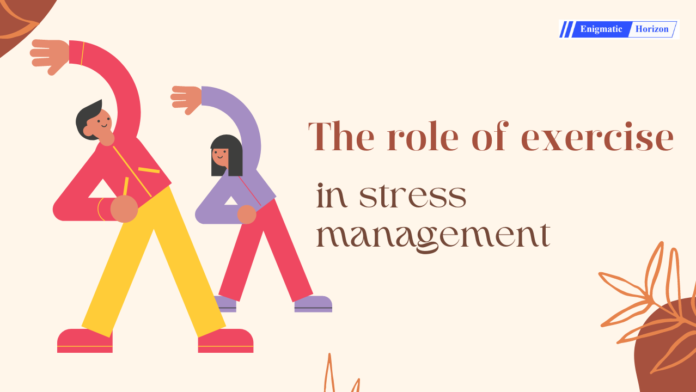Ankita Naskar
Exercise is one of nature’s most effective remedies for relieving and reducing stress. Regular physical activity has profound benefits for both the body and brain, helping you achieve and maintain an overall state of well-being. When you exercise, your body releases feel-good hormones that naturally improve your mood and act as painkillers for stressful emotions or distressing events.
In this article, let’s delve deeper and understand the effects of exercise on managing stress and making life better.
Reduces stress hormones
When you are stressed, your body produces high levels of the stress hormone cortisol. Excess cortisol in the body can have negative health effects like weight gain, sleep problems, and anxiety. Exercise helps lower cortisol levels, which in turn helps you feel less stressed and anxious. Aerobic exercise and strength training are two of the best ways to decrease cortisol.
Relieves tension and improves mood
Endorphins are released during exercise and help improve your mood and act as natural painkillers. Endorphins are responsible for the “runner’s high” feeling. They help you feel good and block pain receptors in your brain. Exercise also releases serotonin, a mood-regulating neurotransmitter. Higher levels of serotonin lead to an improved mood and act as a natural antidepressant. Exercise is a great way to release pent-up tension and frustration, leading to an improved state of relaxation and well-being.
Aids better sleep and rest
Exercise promotes better sleep at night, which is essential for effective stress management. When you are well-rested, you are better equipped both physically and mentally to handle stressful situations. Exercise helps you fall asleep faster and sleep more soundly at night. For best results, aim for regular, moderate exercise 3-4 times a week. However, avoid exercising right before bed, as it may cause excess arousal and make it harder to fall asleep.
Relieves anxiety
For those with an anxiety disorder, exercise can be especially helpful for stress management and mood regulation. Exercise releases endorphins that counteract the fight or flight response associated with anxiety and panic attacks. It also provides an outlet for excess energy stemming from anxiety. Regular exercise helps relax both the mind and body, reducing worries and fostering a calmer perspective towards anxiety-provoking situations. Exercise should be combined with therapy for the most effective anxiety management.
Channels out emotions
Exercise serves as a versatile outlet for channeling stressful emotions and halting unproductive rumination. When anxiety rises, exercise absorbs your mental and physical energy, so you can release built-up tensions or troublesome worries in a constructive manner. It thwarts repetitive negative thoughts that compound the perception of being overstressed. Exercise redirects your mind and body, shifting your focus away from stressful ruminations and projecting it onto physical movement or activity. This helps circumvent cycles of excessive worrying, social comparison, and “what if” catastrophizing that intensify distress.
Promotes cardiovascular health
Exercise drives advancements in cardiovascular fitness, endurance, and muscular strength that fortify your ability to engage in life’s meaningful pursuits and combat stress. Improved heart health, lung capacity, and stamina provide more energy for activities that boost well-being and joy. Muscle conditioning through exercise enhances functionality, allowing you to more fully participate in hobbies or social interactions that you find inherently rejuvenating and fulfilling.
To wrap up:
At any intensity level, exercise can significantly boost your capacity to cope with stress and maintain balance. Even light activities such as walking or gentle yoga can help clear your mind and decrease tension. Exercise is a natural and accessible means of releasing and relieving stressful emotions. Making it a habit will benefit both physical and mental health, resulting in an overall calmer state of well-being.
